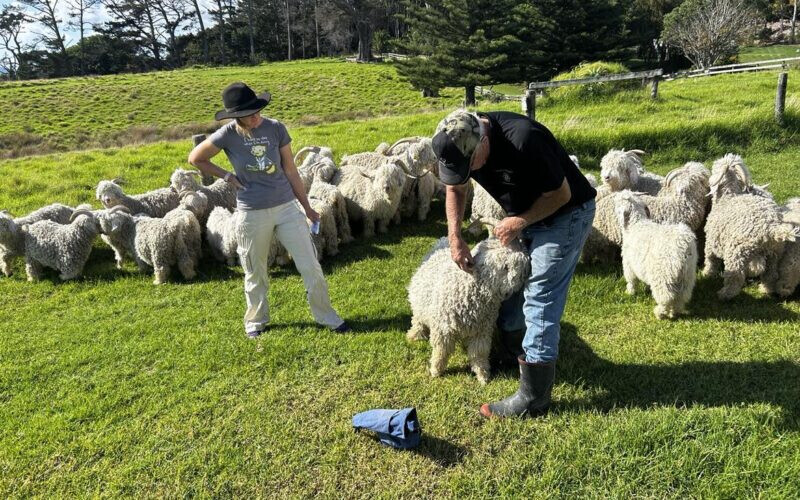
Auckland, New Zealand – Aiden Gent, ASB Bank's Manager of Rural Banking, has returned from a recent visit to Singapore with a renewed sense of optimism and passion for the future of New Zealand's food and fiber sectors. While Mr. Gent has long held a positive outlook for the industry, his conviction has been significantly bolstered by observations in Singapore, where despite substantial investment in alternative proteins, a clear demand for New Zealand's agricultural products persists.
The key challenge now, according to Mr. Gent, lies in optimizing the marketing and value proposition of these premium goods. "The future for the food and fiber we produce is incredibly bright. Globally, customers want more of what we produce, but we need to be more ambitious in how we leverage our potential land and food systems," he asserted.
Singapore, a nation constrained by limited natural resources, exemplifies a proactive approach to addressing critical issues such as food and energy security. The city-state's government, private sector, and research institutions collaborate extensively, channeling significant investment into research and development initiatives. Despite a population of just six million, Singapore's GDP surpasses New Zealand's by 60%, and it manages two substantial sovereign wealth funds valued at NZD 1.5 trillion and NZD 540 billion, respectively.
Mr. Gent posits that for New Zealand's primary sector to effectively tap into such capital, it requires not only the identification of suitable projects but also a fundamental shift in mindset across two key areas. Firstly, a deeper consideration of how capital investment can revolutionize operational practices and foster innovation within the sector. Secondly, a strategic evaluation of which segments of the food and fiber value chain can be best leveraged to drive prosperity.
Drawing parallels, Mr. Gent highlighted Singapore's remarkable transformation into a global economic and logistics powerhouse through strategic partnerships and collaborations, despite its lack of natural resources. This approach, he suggests, could offer valuable lessons for New Zealand, particularly when considering attracting investment in sensitive domestic assets. For instance, investments in new horticultural ventures necessitate parallel development in packing facilities and logistics infrastructure. "We are talking about commercially viable collaborations," he clarified.
Paul Gestro, Director of ASB Access, who also participated in the Singapore visit, noted Singapore's success in bridging the gap between research, development, and commercialization of novel products, underpinned by a focus on agreed long-term strategies. "They understand what they do well and align their goals with their national strengths," Mr. Gestro explained, emphasizing the efficacy of their targeted approach.
Kristen Ashby, ASB Bank's Head of Food and Fiber, echoed these sentiments, observing Singapore's openness to new ways of thinking and operating. She raised the question of whether New Zealand could adopt similar approaches, acknowledging that this could necessitate challenging conversations and a willingness to embrace change.
Singapore's economic success story is largely attributed to its innovative technologies and strategic partnerships, which have enabled it to overcome its resource limitations. In the realm of food security, the nation has actively embraced cutting-edge technologies such as vertical farming and the development of alternative proteins to enhance its domestic food production capabilities. Furthermore, a robust synergy between government support and private investment has been a crucial catalyst for Singapore's prominence in research and development.
New Zealand, renowned globally for its high-quality agricultural products stemming from its abundant natural resources and pristine environment, faces increasing pressure from global market competition and the growing demand for sustainable agricultural practices. The insights gleaned from Singapore offer a potential pathway for New Zealand to generate higher value and secure new avenues for growth through the adoption of innovative technologies and the cultivation of strategic collaborations.
Moving forward, it will be crucial for New Zealand's agribusiness sector to build upon its existing strengths while proactively adapting to the evolving global landscape. Specifically, attracting large-scale capital, similar to Singapore's sovereign wealth funds, increasing investment in research and development, and establishing efficient logistics systems will be pivotal in shaping the future growth and resilience of New Zealand's food and fiber industries.
[Copyright (c) Global Economic Times. All Rights Reserved.]




























